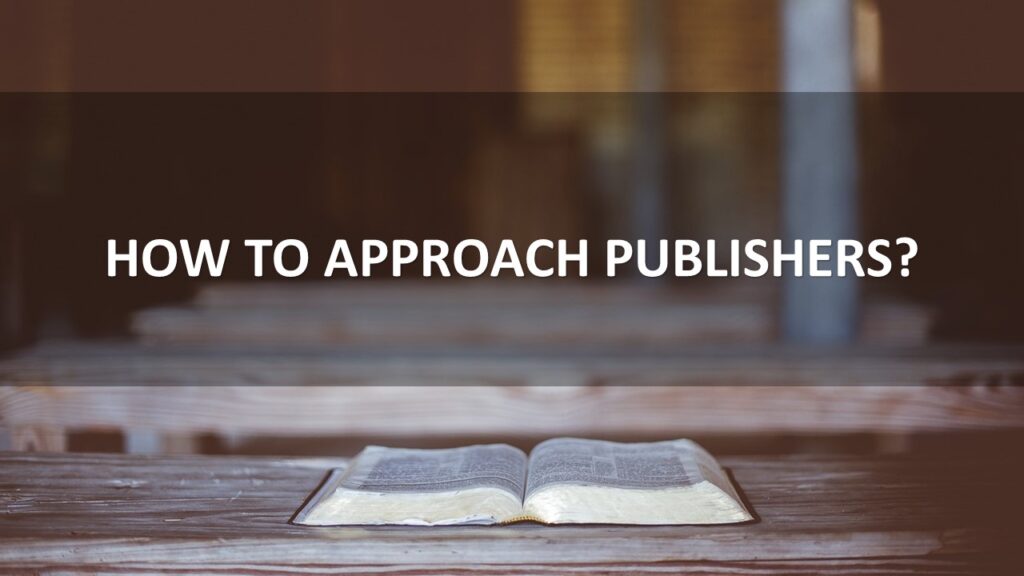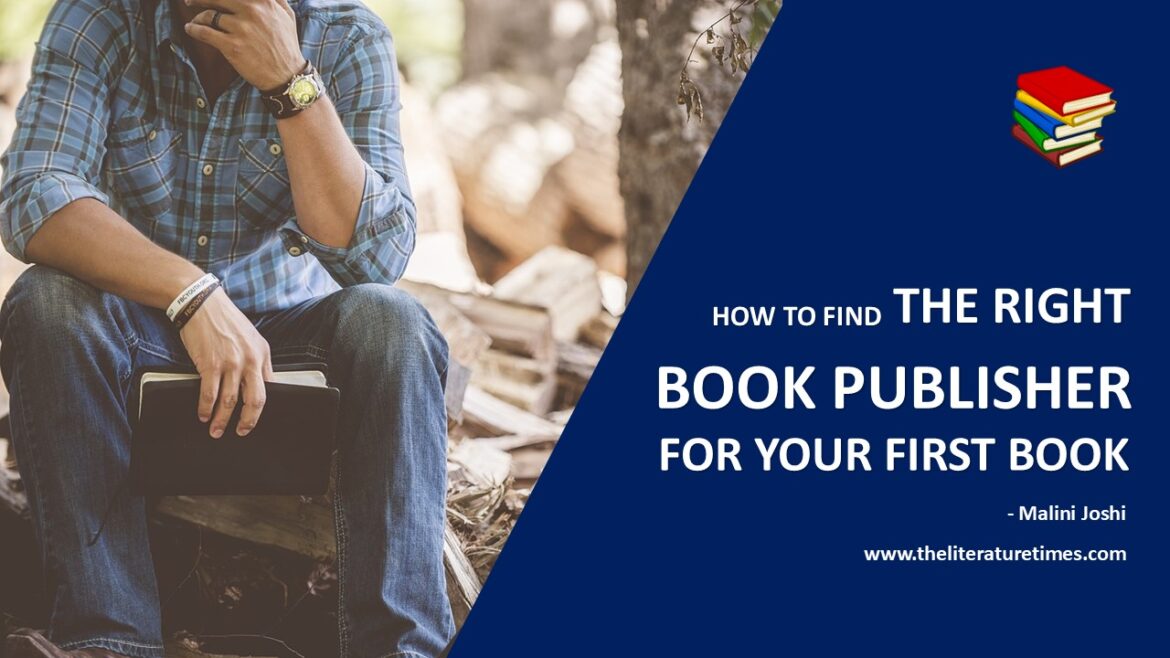As laborious as the task of writing a book, equally challenging and crucial is the task of finding the publisher who would not only do justice to your hard work but also give it the right wings to fly and fulfill your dream to become a bestseller. How to find a publisher for your book is a challenging question, but if the choice is made with prudence and research, then it can be of benefit even for your future writings. With the evolving landscape of book publishing, it’s important to navigate the process wisely to ensure your book reaches its intended audience. In this guide, we will explore the steps to finding the right book publisher for your work by answering many questions that confront authors regarding publisher selection:
GET A FREE PUBLISHING GUIDE
1. How to Find a Book Publisher?
You can find a right publisher for your book by checking their previous works, existing author’s review and book printing quality. You need to give some time to do the research in all these aspects. The search for a best book publisher can be overwhelming, but with careful planning and research, you can increase your chances of success. With today’s technology, finding a publisher is comparatively easier than in earlier days when the internet did not exist. You can try these methods:
1.1 Researching Online:
The internet is a treasure trove of information and makes life much easier for us. Look for publishers who specialize in your genre. Websites like Publisher’s Marketplace, Poets & Writers, and Writer’s Market offer databases of publishers and their submission guidelines. Additionally, there would be plenty of blogs and articles available that talk about the publications, their services and the overall experience of other authors.
1.2 Attending Writing Conferences:
Literary conferences and book fairs provide valuable opportunities to network with publishers, agents, and fellow authors. These events are a great way to learn about the industry and make connections. These platforms serve as mediums to interact with industry experts and understand its dynamics through first-hand experience.
1.3 Joining Writing Groups:
Online and offline writing communities can offer valuable insights into the publishing world. Fellow writers can share their experiences and provide recommendations. Platforms like LinkedIn encourage large scale author interactions through online meedt-ups.
2. What Type of Publisher Do I Need?
Before you approach publishers, it’s essential to understand what type of publisher would suit your purpose and objectives. Due to the different types of publishing options available, it becomes easier to compare and understand based on their services, from accepting your manuscript to publishing the book:
2.1 Traditional Publishers
These established traditional publishing houses offer advances and handle various aspects of publishing, from editing to distribution. They have the resources to reach a wide audience. Traditional publishing option is good for already established authors.
See List: The Top 15 Traditional Publishers in India
2.2 Small Presses
These are independent publishers that focus on specific genres or themes. They often offer more personalized attention to authors.
2.3 Hybrid Publishers
A blend of traditional and self-publishing, hybrid publishers may require the author to invest financially but offer professional publishing services in return.
Read: What is Hybrid Publishing? All You Need to Know
2.4 Self Publishing
With self publishing in India, you retain complete control over the publishing process. This is the best and most preferred method of publishing for the first time authors. Moreover, this form of publishing is becoming increasingly popular among authors now.
Self Publishing Companies:
See List: Top 10 Self-Publishing Companies in India
3. How to Approach Publishers?

The first impression is the last impression. Hence, the manner in which you choose to approach publishers would make the difference when it comes to the acceptance of your manuscript. Submitting your manuscript to publishers requires careful preparation and attention to detail:
3.1. Read Submission Guidelines
Each publisher has specific submission guidelines. Follow them meticulously to make a professional impression. Following the guidelines closely would also convey your seriousness towards your objective.
3.2. Write a Strong Query Letter
Your query letter should be concise, engaging, and provide a glimpse of your book’s essence. Include a brief synopsis, your author bio, and any relevant credentials. Without any diversions, it is necessary to be focussed on the point to highlight important facts.
3.3 Prepare a Stellar Synopsis
The synopsis is your book’s sales pitch. Summarize your story while highlighting its unique aspects. This can be edited and revised and opinions of industry experts can also be taken before the final submission.
4. How to Approach Literary Agents?
Literary agents in India act as intermediaries between authors and publishers. They can speed up the process of publication by helping you through the publication options available and guide you about the right publisher for the genre in which you are writing. Here’s how to approach them effectively:
4.1. Research Agents
Look for agents who represent your genre. Investigate their client list and track record to ensure they’re a good fit. This would help in selecting the best agent for the job.
4.2. Craft a Compelling Query
Your query letter to agents should be well-written and tailored to their preferences. Highlight why your book and your voice stand out. This can again seem like a sales pitch, but make sure it does not sound commercial. The book is a product of your creativity; make sure this is conveyed clearly.
4.3. Be Professional and Patient
Agents receive numerous submissions, so patience is key. If you receive rejections, don’t be disheartened. Feedback, if provided, can be valuable. That feedback can be implemented to enhance your final version. Revisions help to polish the content, which is essential for it to be received well.
5. Should I Self-Publish?
The decision to self publish in India is a significant one. Even though it is increasingly gaining popularity at present, it also is a big decision for the future of your book. It offers creative control but demands additional responsibilities. The cost of self publishing in India is affordable and there are lot of self publishers providing at best rates. While it gives you independence, it also gives you the charge to make decisions:
5.1. Control
Self-publishing gives you control over every aspect, from cover design to pricing. This control also extends to the post-publication scenario.
5.2. Marketing
You’ll need to actively promote your book, build an audience, and manage distribution. Since you have control, you can decide the strategies that would be effective and suitable for your book before and after publication. Various self publishing houses provide marketing in their packages or you can hire one of the best book marketing companies in India.
5.3. Investment
Self-publishing requires financial investment for editing, cover design, and marketing. It also requires smart management of money and avoiding it from being wasted.
6. Ways to Select a Publisher:
With numerous publishers vying for your attention, here are strategies to identify the right fit:
6.1. Market Research
Investigate the publishers’ track records. Have they published successful books in your genre? Are their books well-received? Interactions in author circles can also serve the purpose
6.2. Google Reviews
Online reviews can provide insights into authors’ experiences with a publisher’s professionalism, transparency, and support. Reviews are the life and blood of every activity being conducted online. Hence, they can rightfully guide you to make the right choice.
6.3. Talk to Existing Clients
Reach out to authors who have worked with your prospective publisher. Personal feedback can reveal valuable information. Ask them about the book genre and the strategies the publisher took, and how the overall experience of the author was.
6.4. Beware of Free Publisher
Free publishing may sound tempting, but that is probably the biggest risk as it carries the possibility of your work being stolen. Publishers who promise free services might come with hidden costs or compromise on quality. Always remember that nothing in this world is for free. This can not be either.
7. Do the Publishing Agreement and NDA to Avoid Copyright Issues
Before finalizing your publishing deal, ensure you thoroughly understand the publishing agreement. An agreement that outlines rights, royalties, and responsibilities is crucial. Consider a Non-Disclosure Agreement (NDA) to protect your work from unauthorized use. Before signing it, take a close look and make the necessary tweaks and amendments if required and only go ahead after being fully assured that you have got everything in the order you had planned.
Conclusion
Finding the right publisher for your book is a critical step that requires patience, research, and thoughtful consideration of your goals and priorities. Whether you choose traditional publishing or explore self publishing options, remember that your book’s success is a collaborative effort between you, the publisher, and your readers. By following these steps and maintaining a proactive approach, you’ll be well on your way to bringing your literary masterpiece to the world.




